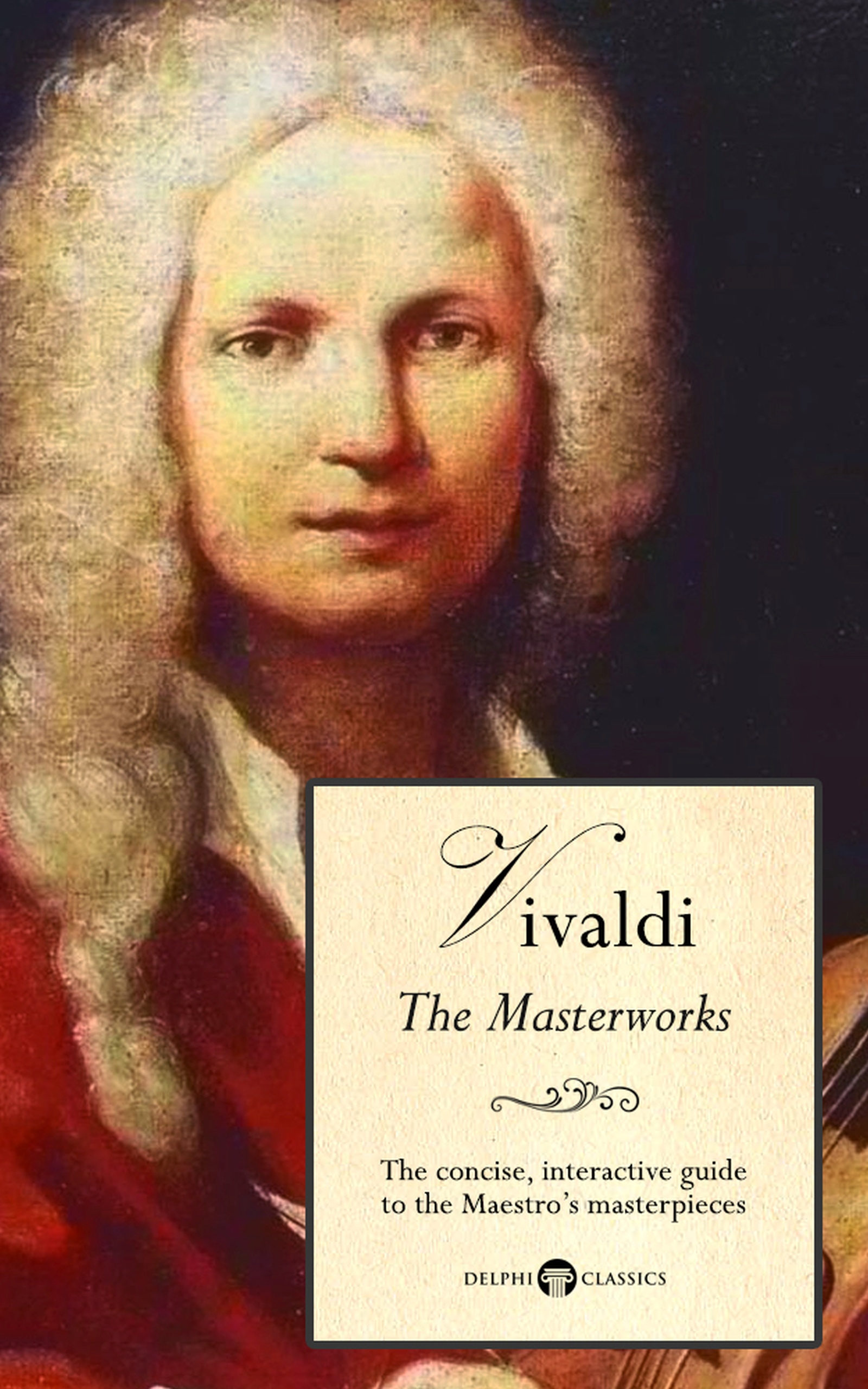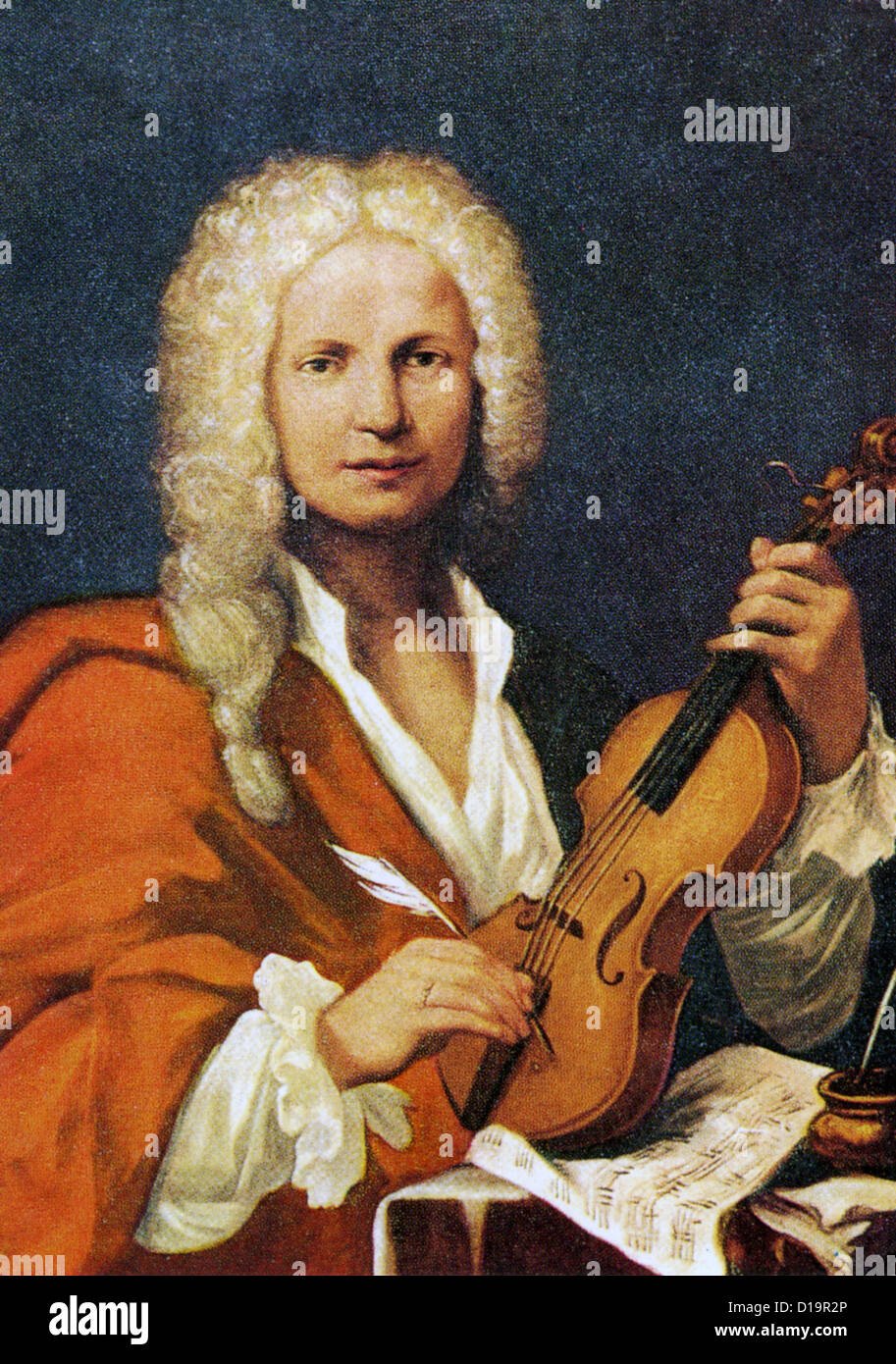The Four Seasons (in Italian: Le Quattro Stagioni) by Antonio Vivaldi, Italian composer and violinist, is a group of four concertos for violin solo concertante and chamber orchestra.
The four concerts of The Four Seasons have been composed with a careful study of the tones: “Spring” has the brightness of the E major; the G minor describes the sweetness and the melancholy of “Summer”; the F major (“Autumn”) creates a rustic and crepuscular atmosphere, while the desolation of the F minor effectively describes “Winter”.

Other characteristics of Vivaldi's composition are the use of particular executive techniques, such as the use of high notes (to recall the birds in “Spring”) or the reduction of the accompaniment to a single long-lasting note, which recalls a great breath, a sense of expectation that anticipates a meteorological phenomenon. Furthermore, the plucked strings of violins, in “Winter”, remind us of the rain falling outside our homes.
Motezuma, RV 723, is an opera in three acts by Antonio Vivaldi with an Italian libretto by Alvise Giusti.The libretto is very loosely based on the life of the Aztec ruler Montezuma who died in 1520. The first performance was given in the Teatro Sant'Angelo in Venice on 14 November 1733. (In earlier reference books the opera is referred to as Montezuma, but since the reappearance of the. Vivaldi Italian Cheeses VIVALDI is born in 2009 from the thirty - year experience in the dairy sector of Nicola Arnoldi. The art of Italian cheese VIVALDI was founded in 2009 from the experience spanning over thirty years in the dairy and cheese sector of Nicola Arnoldi.
Each concerto is preceded by an accompanying sonnet in Italian that describes the characteristics of each season.
The Opera was an instant success throughout Europe, bringing worldwide fame to the Italian composer.

The Four Seasons, Italian Le quattro stagioni, group of four violin concerti by Italian composer Antonio Vivaldi, each of which gives a musical expression to a season of the year. Vivaldi International s.r.l is a well established manufacturer of high quality furniture for the Hotel industry and residential sector. The company’s manufacturing base is comprehensive and flexible, employing craftsmen whose traditional skills and experience in furniture making are backed up with the latest manufacturing methods. Vivaldi was not the first Italian composer to bring operatic recitatives and arias into the music of the Catholic Church, but his Gloria is proof of the expressive powers that opera could lend to religious experience. The text of the Gloria begins by quoting one of the more theatrical passages of the Bible, from the story of the Nativity in the.
Antonio Vivaldi was also a priest, and was often called 'Il Prete Rosso' (The Red Priest) for the color of his hair.


One of the most widespread fabrication of history about the artist is his alleged bad habit of interrupting the celebration of the Mass to run to the sacristy and write the musical themes that came to his mind. Actually Vivaldi suffered from a disease similar to asthma which forced him to take breaks during the celebration of the Mass.
Artist Biography by Rovi Staff
The creator of hundreds of spirited, extroverted instrumental works, Italian composer Antonio Vivaldi is widely recognized as the master of the Baroque instrumental concerto, which he perfected and popularized more than any of his contemporaries. Vivaldi's kinetic rhythms, fluid melodies, bright instrumental effects, and extensions of instrumental technique make his some of the most enjoyable of Baroque music. He was highly influential among his contemporaries and successors: even as esteemed a figure as Johann Sebastian Bach adapted some of Vivaldi's music. Vivaldi's variable textures and dramatic effects initiated the shift toward what became the Classical style; a deeper understanding of his music begins with the realization that, compared with Bach and even Handel, he was Baroque music's arch progressive. Though not as familiar as his concerti, Vivaldi's stage and choral music is still of value; his sometimes bouncy, sometimes lyrical Gloria in D major (1708) has remained a perennial favorite. His operas were widely performed in his own time.
Viva Vivaldi Italian Opera
Details regarding Vivaldi's early life are few. His father was a violinist in the Cathedral of Venice's orchestra and probably Antonio's first teacher. There is much speculation about other teachers, such as Corelli, but no evidence to support this. Vivaldi studied for the priesthood as a young man and was ordained in 1703. He was known for much of his career as 'il prete rosso' (the red-haired priest), but soon after his ordination he declined to take on his ecclesiastical duties. Later in life he cited ill health as the reason, but other motivations have been proposed; perhaps Vivaldi simply wanted to explore new opportunities as a composer. It didn't take him long. Landing a job as a violin teacher at a girls' orphanage in Venice (where he would work in one capacity or another during several stretches of his life), he published a set of trio sonatas and another of violin sonatas. Word of his abilities spread throughout Europe, and in 1711 an Amsterdam publisher released a set of Vivaldi's concertos for one or more violins with orchestra under the title L'estro armonico (Harmonic Inspiration). These were best-sellers (it was this group of concertos that spurred Bach's transcriptions), and Vivaldi followed them up with several more equally successful concerto sets. Perhaps the most prolific of all the great European composers, he once boasted that he could compose a concerto faster than a copyist could ready the individual parts for the players in the orchestra. He began to compose operas, worked from 1718 to 1720 in the court of the German principality of Hessen-Darmstadt, and traveled in Austria and perhaps Bohemia. Throughout his career, he had his choice of commissions from nobility and the highest members of society, the ability to use the best performers, and enough business savvy to try to control the publication of his works, although due to his popularity, many were published without his consent. Later in life Vivaldi was plagued by rumors of a sexual liaison with one of his vocal students, and he was censured by ecclesiastical authorities. His Italian career on the rocks, he headed for Vienna. He died there and was buried as a pauper in 1741, although at the height of his career his publications had earned him a comfortable living.
